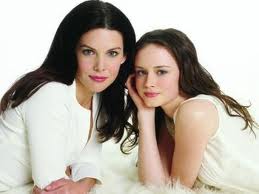 At my first doctor’s appointment after my mother died, almost eight years ago now, the doctor thought it was important that we talk about grief. I sat on the examining table, hands wedged under my thighs, counting the number of Rockwell paintings in the room. I was twenty-three then, confused and proud, scared to open my emotional casing. I worried that even the scent of grief would unleash an anguish so unrelenting that it would seep into my fresh psychic cracks and burrow its way to the centre of my being. I just didn’t have time for that: I was weeks away from my second year of law school, about to start a poverty law rotation at a legal aid clinic.
At my first doctor’s appointment after my mother died, almost eight years ago now, the doctor thought it was important that we talk about grief. I sat on the examining table, hands wedged under my thighs, counting the number of Rockwell paintings in the room. I was twenty-three then, confused and proud, scared to open my emotional casing. I worried that even the scent of grief would unleash an anguish so unrelenting that it would seep into my fresh psychic cracks and burrow its way to the centre of my being. I just didn’t have time for that: I was weeks away from my second year of law school, about to start a poverty law rotation at a legal aid clinic.
“I don’t need to talk,” I told him, “I’m fine.”
Clearly unable to read the room, the doctor went on. Leaning forward, with his hands on his knees, he said: “Our relationships with loved ones never truly end. They just change after death.”
There were five Rockwell paintings.
I dismissed the doctor’s words as sentimental nonesense. I had shoveled dirt onto my mother’s grave, as is Jewish custom, heard it land across her casket, so I was quite certain that our relationship had definitively come to an end. To think otherwise felt a little sixth-sensey to me. I wondered where he graduated from medical school.
It turned out, though, that the doctor was right. In the time that followed after her passing, I heard my mother’s voice all the time. When I walked into a room, she told me to put my shoulders back. If I was running late for work, she would chastise me for not going to bed earlier. When I stood up in court, she would assuage my nerves, tell me I could do it. My curls still irked her, though-she told me so. “Move your hair off your face,” I would hear her say, “how’s the judge going to hear you?” And every time I got dressed to leave the house, she would lament: “Would it kill you to wear a little bit of lipstick?”
My mother would say these things, and I would answer her just like before. At times we would even bicker. She would urge me again to undo the top button of my blouse. I would refuse and she would tease me for my primness.
“Anne Frank called. She wants her cardigans back.”
Most often she was horrified with the state of my apartment.
“Yes, mom, of course I know what a vacuum is.”
“No, I’m not leaving my floors dirty on purpose to upset you.”
While these dialogues had become part of my daily soundtrack, I’ve noticed lately that the volume on them is turning quieter. This running commentary of my mother’s, that had been so biting and so present for so many years, seems to be fading away. I’ve been  wondering why that is, why, now, we seem to be losing touch. What have I done to silence her? Has she finally made peace with the fact that I am just a lip balm sort of girl?
wondering why that is, why, now, we seem to be losing touch. What have I done to silence her? Has she finally made peace with the fact that I am just a lip balm sort of girl?
I think what I’ve done is grown. I think my mother doesn’t have anything to say to me because she doesn’t know me anymore. While I might still sit on my hands when I’m nervous, I’m no longer the confused little girl I once was. I have left law. I’m pursuing what I have always wanted to do. I wear my hair curly. I’m no longer the person my mother knew. Since she’s died, or, perhaps, precisely because she has died, I have gained a greater sense of self and am becoming more of the person I always wanted to be but was too scared to try.
What could my mother say to me now, to this person she never met?
Still in the difficult process of undoing past decisions and building my life anew, I so much want to celebrate every time I unhitch another knot that tied me down to what was supposed to be. But as each rope falls, as I move further away from that uncertain twenty-three year old who stoicly buried her mother, I can’t help but feel that I am losing her all over again. Some nights, when I wash off the day, I’ll find myself sitting down in the shower, my head resting in my hands, feeling the weight of my wet curls. My knees pulled into my chest I’ll start to weep. I cry all the tears I should have cried eight years ago, the ones I didn’t know how to then, or the ones I didn’t need to because my relationship with my mother hadn’t yet come to an end. My relationship with my mother feels over now, in a much more definitve way than it ever has before. I watch my friends’ mothers now become mothers-in-law and grandmothers and am reminded of how much time has passed. Every time I write I am reminded of how very much I want to be a writer and how my mother will never read a single word I ever write.
There are days when the pain of loss feels oppressive and I worry again that the heartache will be soaked up by all my many cracks that haven’t fully healed. I start wanting to move backwards, to give up and retreat to the safety of the life I used to know. I feel myself grasping at my mother with flailing outstretched hands and fingernails that she always wished I would grow.
Victor Frankl, in Man’s Search for Meaning, says that love goes beyond the physical person, so much so that whether the person is actually alive ceases to be of importance. I read this passage over and over again. I tell myself that while my mother no longer knows me, she needn’t be here to love me. Our love for each other can transcend my changing values, character and hair.

![Am I Doing Everything Right to Become a Mother This month for fertilty matters, I wonder if I’ve done everything right to become a mother or if I drank too much coffee. You can check out my post here: […]](http://sadinthecity.com/wp-content/uploads/2015/07/IMG_05621-100x100.jpg)
![Writing for Fertility Matters – Smile Though You’re Infertile I am honoured to be contributing to Fertility Matters, a national organization that empowers Canadians to help reach their reproductive health goals by providing support, awareness, information and education; and […]](http://sadinthecity.com/wp-content/uploads/2016/06/StephenWendyDiego-100x100.jpg)

![Letting Go of Biological Motherhood I take my dog, Diego, for a walk over my lunch break hoping some fresh air will do me good. I’m in my new uniform: torn Joe Fresh sweatpants shoved […]](http://sadinthecity.com/wp-content/uploads/2016/03/fertilifucked2-100x100.png)
![I’m Expecting….A Web Series! I am so excited to share with you that I’m expecting…. a web series! Here is the trailer for How To Buy A Baby: https://www.youtube.com/watch?v=sLqSlmok9KA My team and I are […]](http://sadinthecity.com/wp-content/uploads/2016/03/prego-announcement-100x100.jpg)


![I am a Grown-Up! Even if my Nieces Don’t Think So… I begin to suspect my nieces, 12 and 9, don’t quite see me as a grown-up when I get a text from one while she is playing at the park […]](http://sadinthecity.com/wp-content/uploads/2015/10/aunt-big-deal-100x100.jpg)
![The Dialogue Project I am honoured to have contributed a piece to the Dialogue Project, a social mission dedicated to raising funds and awareness about mental illness. You can check out my post […]](http://sadinthecity.com/wp-content/uploads/2015/10/dialougeproject-100x100.png)


beautiful. You. Your writing, and your love for your mom. full stop.
Thanks for this.
This is a really beautiful post Wendy. I know you won’t believe me, but you’re one of the strongest people I know. Keep writing, I know your mom is following along.
You made me cry. Again. You know how your mom always had a commanding presence when she was in a room? That’s your voice on the page. It grabs you and holds you. I love your writing.
Such a beautiful post Wendy! Thanks for sharing 🙂 I still find it difficult, in my early 30’s to live life for me, and not for my parents. But no matter how much we diagree, I know they love me unconditionally, and I do to.
What a beautiful post. This one was so touching!
I loved this. (And that you got the Anne Frank line in there!)
I am not sure how I am writing this as the tears are blurring my vision. Wendy my dear, don’t EVER stop writing. Please. I seem to be unable to blink when I am reading your words and I always find myself looking for more to read where you left off….You are an incredible talent. XO
Touching, honest and raw. I love it. And Victor Frankl? Wonderful quote. Those that we love and were loved by, do not ever leave us.
Wendy. Unreal. Such a beautiful piece. One of my favourites. Your mom would have been unbelievably proud of you. Of that I am certain.